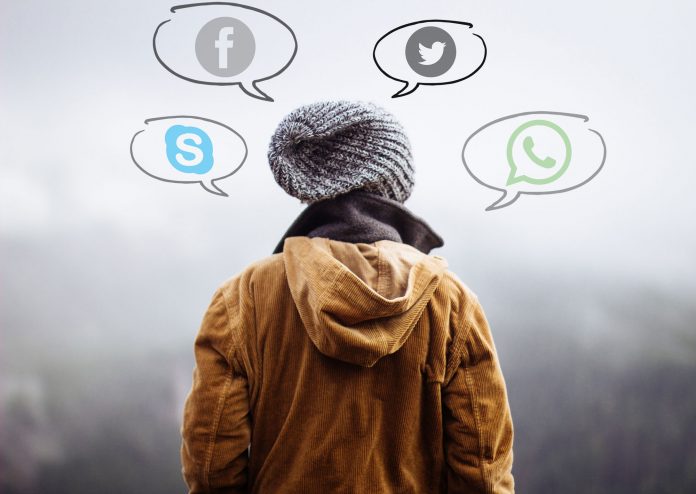According to the National Alliance for Mental Illness, one in four college students between the ages of 18 and 24 have a diagnosed mental illness. With the ever-increasing and constant demands of society to look, act and present young adults in a way that portrays themselves as perfection, there no surprise that there is an increase in the demands, creating consequences in young adults.
Additionally, the presence of social media and the constant connection to almost anyone at any time creates a ow of self-doubt and comparison, by looking at people’s “picture perfect” life, based on places they have traveled, people they have seen, and different organizations they are involved in. I’m not going to lie, it is hard always being your true self in constant comparison to someone else’s “picture perfect snapshot” that could include exotic vacations or expensive material items that they might showcase in an Instagram picture or a Facebook status.
This pressure and self-doubt does not take a break, especially for those dealing with mental illness. However World Mental Health Awareness Day was celebrated all around the world on Oct. 10. People used social media to share their stories of mental illness, and even stories of having to spend time in a mental health facility.
Even celebrities including Sophia Bush, who talked about her experience with what she calls her “badass therapist,” and how meditation has greatly improved her mental health. Anna Camp also posted on Instagram, shedding a more personal light on issues they have faced. Muhlenberg students who are both outspoken and more reserved about mental illness took to social media to share personal stories and things they have experienced.
Organizations like “I Don’t Mind,” a program with a mission to encourage people to speak their minds and erase the stigma about mental illness by wearing t-shirts and apparel, are becoming more prominent in society. It is almost the norm to be open about mental illnesses, and quite frankly, it is a sign of the times becoming more and more accepting.
You see people wearing out fits and t-shirts that say “erase the stigma” or “mental health matters” in favor of mental health awareness. You see laptop stickers supporting brain health and molecules of serotonin representing mental health awareness. You see celebrities speaking the truth about their illnesses and friends close to home at Muhlenberg sharing their stories of triumph and courage.
It is important to remember that World Mental Health Day is not just for people su ering from a condition, that day is every day. So, as Muhlenberg students, that means to be kind to everyone and cognizant of the people around you. It could be your roommate, your boy- friend, your girlfriend, best friend, enemy, professor, Uber driver, etc.
Be kind, because everyone you know is fighting an invisible battle you know nothing about, and even just your presence could be the light in someone’s darkness.
World Mental Illness Awareness Day is not a day that just is recognized on Oct. 10, but should be recognized as an ongoing action every day.






















